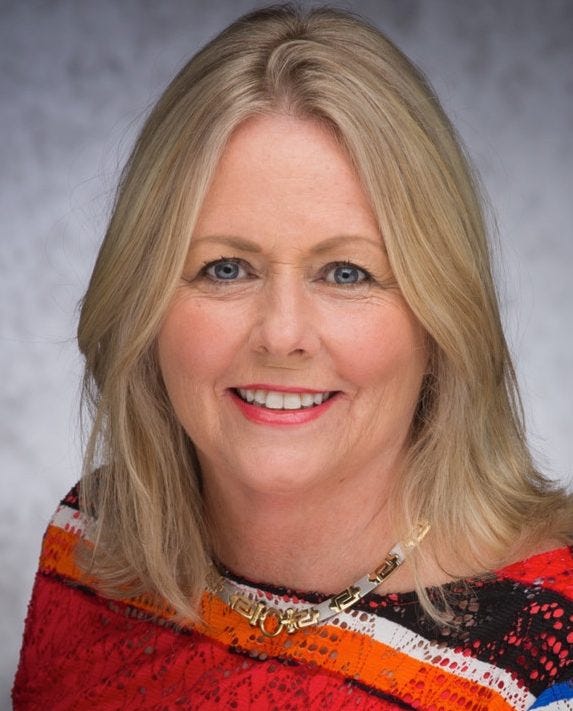Private Equity Creating Chaos in the Channel, Says PartnerPrivate Equity Creating Chaos in the Channel, Says Partner
Private equity is the elephant in the room in the channel. And partners don't know what to do about it.

Private equity looms large in the channel and promises to forever alter the industry.
No one from private equity (PE) stood on stage or sponsored an event at the Channel Partners Conference & Expo last week, but partners say they felt outside investment everywhere. The traditional agent channel in particular is experiencing attention that it has never experienced before.

Eclipse Telecom’s Dave Dyson
“PE guys are onto us. I’ve had so many people lurking around the event saying, ‘Hey, we’re here representing some PE guys who want to talk to leaders in the space,'” said Dave Dyson, CEO of Eclipse Telecom.
The adviser/broker space has witnessed an unprecedented level of investment and consolidation in 2021. Upstack landed a whopping $50 million investment private equity investment that it has used to buy more than a dozen consultancies (and it recently added $100 million in financing). Upstack’s head of global channels and alliances recently told Channel Futures that the company has engaged in talks with upward of 100 agencies. Add to that the flurry of investment occurring up the supply chain with Telarus and Avant, and the game of musical chairs gets louder and more confusing.
“It’s [sic] chaos right now,” Dyson said. “In every conversation I’ve had in the hallways here with my peers, everybody’s like, ‘Should we be merging? Should we be selling? Should we be buying?'”
However, some partners worry about how disparate and secretive these conversations are. Dyson said peers need to compare notes with one another to stave off misinformation.
“[PE is] lurking around. Not talking about it is dangerous at this point,” he said.
Most of the partners speaking to Channel Futures have engaged in some sort of preliminary conversation or have been approached by people from private equity. Some even attended pitch meetings last week. The partners’ responses have varied. One partner has rebuffed requests for meetings. One partner took a deal with a private equity firm and retained one-third ownership in the company. Another partner took an investment from a solutions brokerage and started another company. One partner said other partners have reached out to them about putting their books of business together in order to attract a higher multiple.
End of the Road?
Other partners see private equity as an opportunity to leave the business. They haven’t pivoted to next-generation technologies and the market is leaving them behind.

Top Speed’s Allan Jaffe
“There are some advisers who don’t want to move forward. And of course, the transport business is going up a down escalator. You’ve got to sell more bandwidth and you get less money. So if you don’t evolve, you’re going to retire,” said Allan Jaffe, vice president of technology at Top Speed Data Communications.
Other businesses’ owners want to stick around, but they might lack the size and expertise to survive bandwidth commodification. Kathleen Waters, founder and CEO of the Creekview Group, said many of the smaller firms lack the technical expertise to bring on the newer technologies.

Creekview Group’s Kathleen Waters
“Take a mom-and-pop organization that has 100 accounts, and they’ve been doing transactional broadband or UCaaS. Maybe now they’ve jumped to SD-WAN, but they can’t do anything beyond that,” Waters said.
Dyson said these firms need to either scale up by being acquired or …
… find some additional way to add value to the customer.
“The two-person shop – the agent broker quoting machine – they’re done,” he said. “I don’t think they’re going to make it. I don’t think they can make it. You have to have a value chain. You better be a value added partner.”
PE Intentions?
Partners are still getting to the bottom of what exactly private equity wants from them. Many partners told Channel Futures that they anticipate private equity “to buy it at 6X and sell it at 8.” Getting a return on investment is a no-brainer. But what else do these buyers value about the partners they’re pursuing?
One aspect is for certain; the end customer looms large for private equity. The customer-facing consultants that the industry has come to know as “agents” retain deep, established with their clients, and private equity wants to get in front of those customers.
That’s why even a mom-and-pop shop that’s stuck in legacy services still attracts buyers. David Wright, founder and CEO of Disruptive Innovations, said the companies doing rollups highly value customers that haven’t transitioned to the as-a-service model.

Disruptive Innovations’ David Wright
“The more base of old telco business these organizations acquire, the more opportunity there is to bring them into cloud services and convert old telephony to UCaaS,” Wright said. “Basically it lays the foundation where yes, you have that revenue, but you also have an inroad into this book of customers that you can upsell.”
However, these small firms do more than just possess a book of business.
“The ma-and-pa guys are the masters of relationships,” Dyson said. “And when they leave, does the client leave with them eventually?”
Dyson also shared a strange detail. When he has shared with potential investors that Eclipse makes half of its revenue through consulting, service and project fees, the investors tell him they aren’t interested in that side of his business.
“That’s weird, because now you’re telling me that the agent base is worth a lot more than I thought it was or I’ve been told it was,’ he said. “And how are you telling me the most valuable part of my business has no value to you? You’re not a strategic buyer.”
Unionize?
Christopher Scott, principal owner of Portland, Oregon-based StratoNet, has voiced his concerns around consolidation in the solutions brokerage (formerly known as master agent) space. Consider that brokerage consolidation came after a series of mergers among carriers that left customers with fewer choices. He and other partners said that they see the vendors looking to narrow their number of partners. And consolidation does just that. Scott suggested that the next four to six years might see a winnowing of large partners down to …
… a few dozen.
“Who are the interests of the remaining 30? Whom do they serve? Who’s their master? What butters their bread? By and large, it’s private equity and return on investment. You can bet it’s not the mom-and-pop subagent who signed an agency agreement,” Scott said.
Dyson agreed that vendors are interested in reducing their number of partners.
“Now you have the vendor saying, ‘Well, we don’t need 20 [partners]. We need two or three or one. And they’re even talking about disintermediating,” he said.

StratoNet’s Christopher Scott
Not all partners agree with this gloomy view of the carriers, but Scott worries that the alliance between vendors and brokerages is leaving channel partners and their customers in the cold.
“They’re all at the same barbecue. One brought beer and the other brought meat, and we weren’t invited,” Scott said.
Mike Onystok, senior vice president of operations at TBI, said his company has brought on new partners as a result of other distributors/brokerages selling to private equity ownership. He said those partners worry about an exclusive relationship burning them.

TBI’s Mike Onystok
“If there was any time to diversify, it’s now,” Onystok told Channel Partners.
Scott said he and his peers often bringing up the idea of some sort of partner-led consortium. He pointed to credit unions, which rose up as bank customers grew frustrated with their lack of agency.
“They said, ‘Well, what if what if all the members owned the institution?'” he said. “Now, banks didn’t go away. They still exist. But most of us here probably have some relationship with a credit union. Is there an opportunity for folks that look like us to get together and say, ‘Let’s start a credit union. Let’s loan each other money and do this thing.'”
Financial support from the solutions brokerages exists and continues to grow. The Bank of Intelisys and AppSmart Invest are just a couple of high-profile programs, and Avant CEO Ian Kieninger has promised more available financial support for agents.
However, in some of those cases, partners must navigate questions of exclusivity. Waters said a peer-led alliance would take away power from the large brokerage firms and give it back to the customer-facing partners.
However, Scott said those discussions have often fallen flat when partners get into discussions about power and control.
Not Going Away
Everyone agrees that private equity will stick around. And despite the concerns partners feel about private equity, most acknowledge that everyone has a price. PlanetOne CEO Ted Schuman told Channel Futures earlier this year that he has turned down more than 10 offers. Although he continues to reaffirm his company’s commitment to independence, he admits that no one in their right mind would turn down a “Brinks truck filled with cash.”

PlanetOne’s Ted Schuman
“I’m not saying that I would never sell. Because anyone who tells you that is lying,” Schuman said.
Jaffe offered a parallel in the independent insurance brokerage industry.
“They’re about 20 years and billions of dollars ahead of us. They underwent a consolidation. You still see brokerages buying each other. And that industry continues to grow,” Jaffe said.
Scott agreed.
“Private equity is not going away. Yes, we’ve hidden, but the scent is out. And there’s so much grease on the skin. We all know that trend is gonna continue for the next four to six years. Not until a couple PE firms lose,” he said.
Read more about:
AgentsAbout the Author
You May Also Like


